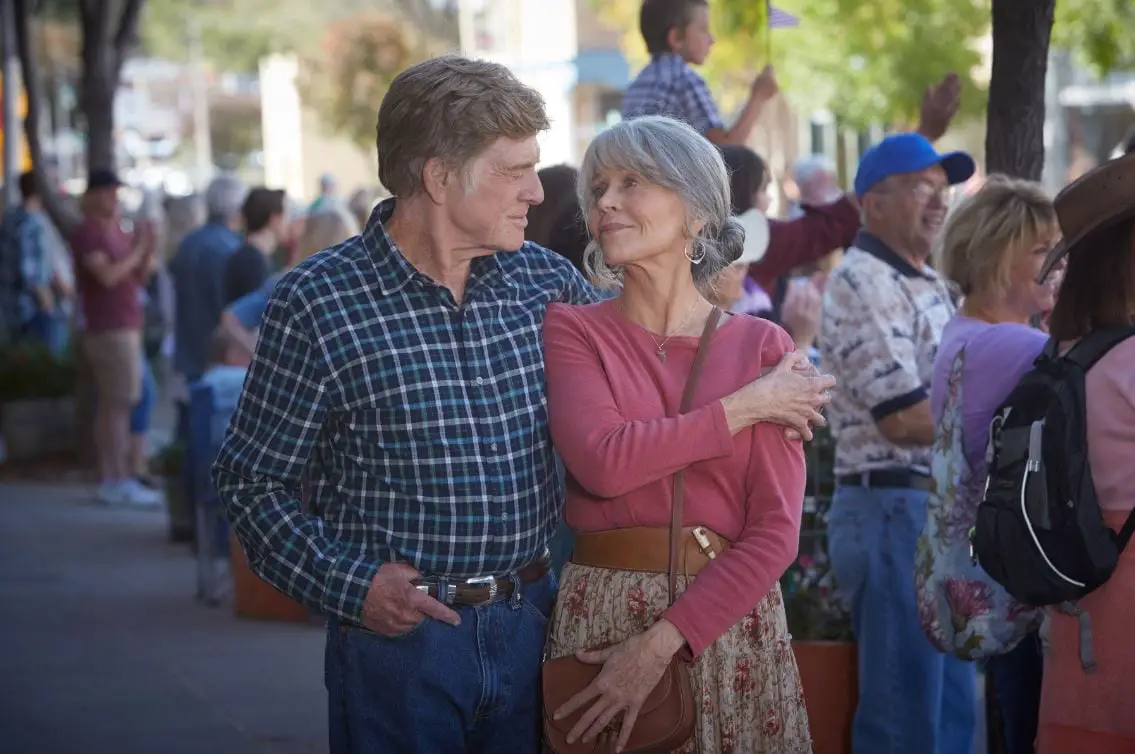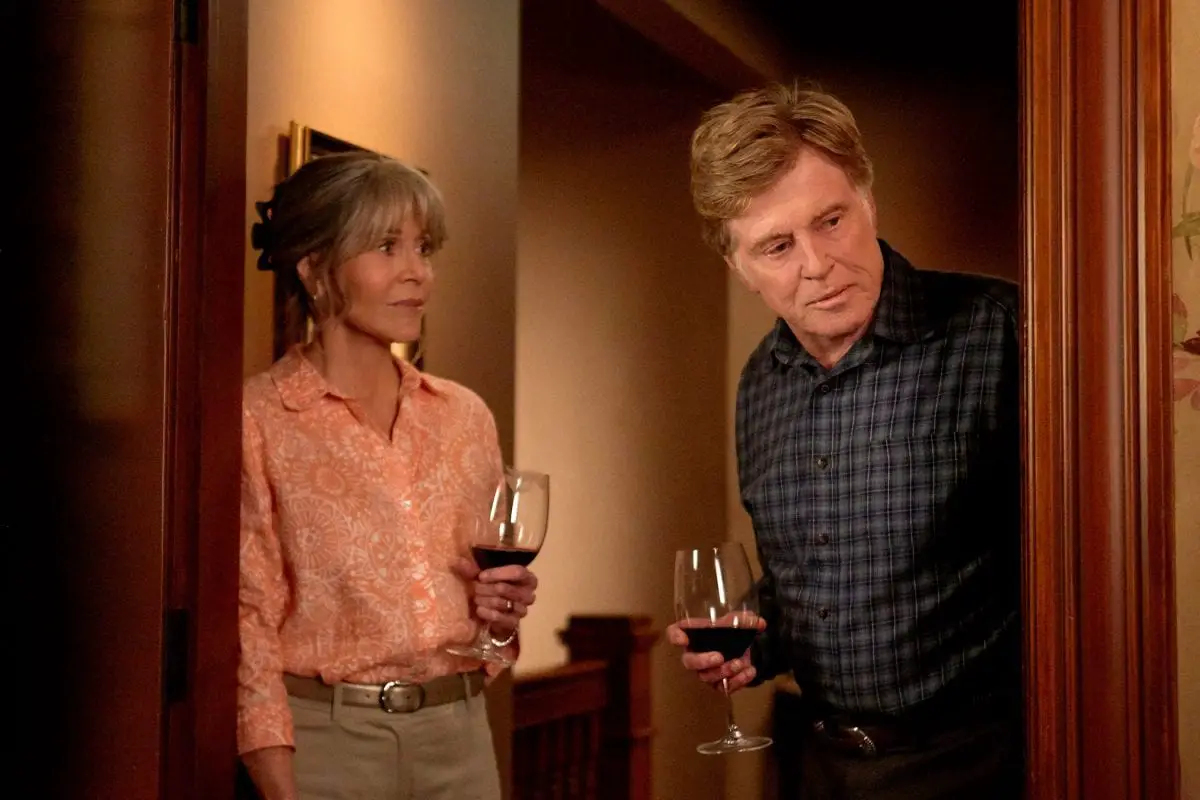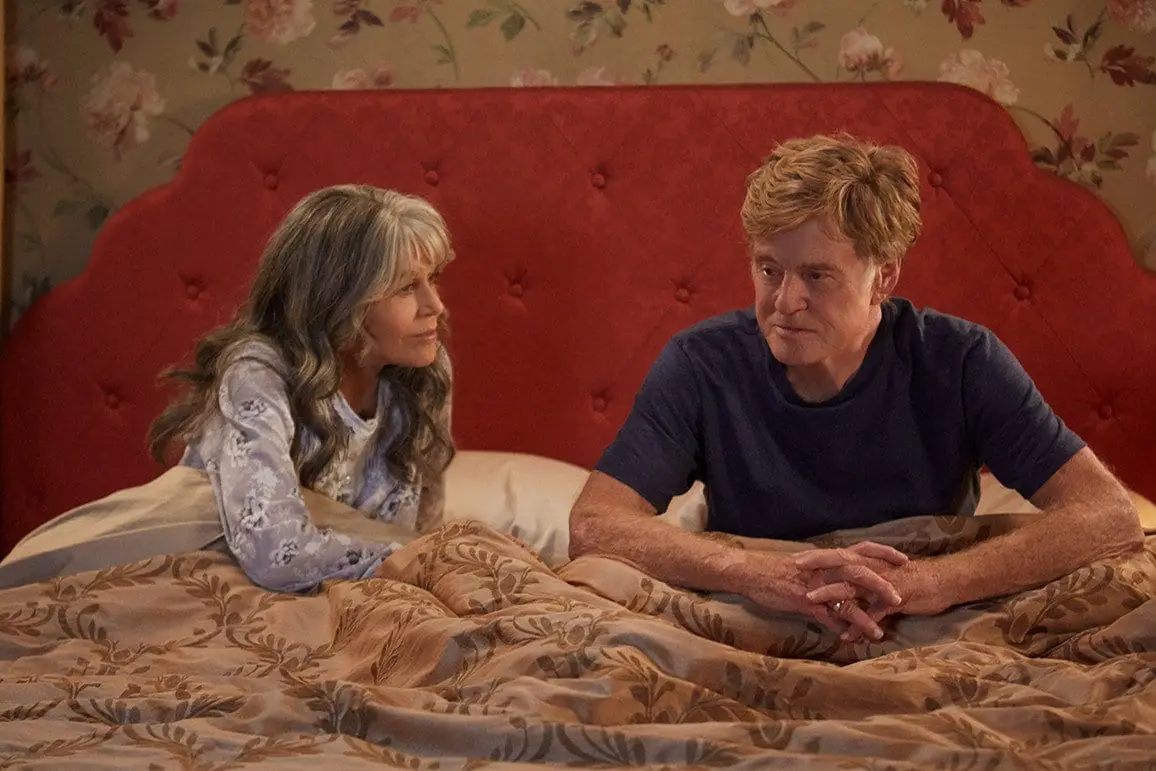It is a fascinating paradox that a non-negotiable aspect of human life, if we are lucky, is that each of us will age, yet that fact is almost universally ignored in the movies we consume. Our hair will grey, our skin will lose elasticity, our bones will weaken, and each of these physical changes is a byproduct of the unbelievable fortune of the phenomenon of our births. Watching movies, however, often doesn’t reflect the auspicious nature of aging. Nearly every film that comes out is saturated with a young cast and people that look “perfect,” void of any reminders that even the people on-screen will age. Film casting, in large, seems determined to expel the notion that aging is even something that exists, or is something to be looked upon favorably. Often when films do feature a person 40+ on-screen, they fill a cookie-cutter role, for instance, a parent that is a nuisance, or some other limitation to the youth that the film is actually concerned with. If a character is 60+, you can almost guarantee that they are being depicted as an entity that exists solely for the younger cast members on-screen.
These characters are likely a grandparent, or a mentor, someone that will inspire another person on-screen as a means to further the plot of the story. They never have their own agency and rarely exist from their perspective alone. Reasons like those listed above are what make films like Our Souls at Night so unique. Ritesh Batra crafted a spellbinding look at an aspect of life that is in constant hiding, removing the shame and stigma of reaching the 60+ demographic. Love and life continue after wrinkles set in, and seeing two actors command the screen in a film about the understanding of the world that comes with the advancement of years creates a more fully formed picture of the world in which we live.

A small town in Colorado, where everyone knows each other and your neighbors know the entire history of you, is where we find Addie Moore (Jane Fonda) and Louis Waters (Robert Redford). Addie and Louis, both widowed, have lived near each other most of their adult lives yet know very little about each other, making Addie’s request that the two sleep over at each other’s houses because “nights are the worst” a surprising concept for Louis. She’s right, though, who hasn’t been alone and only experienced unease after the sun goes down? If you live alone, often you dread the night because that’s when the loneliness sets in. You’re busy in the daytime, and there is something to fill your hours with or errands to run, at night though, life slows down, and your mind is freer to think about past mistakes or the person with whom you used to share your life. This is the case with Addie and Louis. Louis has coffee with friends, frequents the hardware store, goes out of town for truck tires during the day and spends the nights doing crossword puzzles with the weather on in the background.
Addie visits her best friend, goes to softball games, and visits with her grandson during the day but the monotony of cleaning and reading that occupies her nights makes her feel lonely. A free spirit, unconcerned with what her traditional neighbors will think, Addie sees a problem and goes about trying to fix it. Addie lost her spouse as Louis did, is lonely during the night, as she imagines Louis to be, and is tired of sleeping alone. These feelings inspire her to confront Louis with her idea that the two of them will share a bed at night, platonically, and get to know each other as they are both members of a club that no-one wishes to be a part of, the widowed, and can understand each other on a deeper level because of that. Initially reluctant, Louis accepts Addie’s invitation, taking with him clothes and toiletries in a paper grocery sack and entering the back door, as he is more conscious of what others may think of their arrangement. Louis is more cautious because he has a reputation in his neighborhood, as the entire town seems to know that he cheated on his wife and was absent from his family for a time while he was philandering.
This fact is something that has plagued Louis, as he sees the way his absence has impacted his daughter Holly’s (Judy Greer) adult life through her childhood. Louis is also plagued with guilt over the emotional pain he caused his wife. Being her caretaker as she suffered through the cancer that claimed her life made Louis imagine how similar a torment he must have put his wife through while he was having an affair. Addie brings emotional baggage to her conversations she embarks on with Louis, as well. Addie lost a child who was hit by a car after she went inside to check on a dinner she was preparing. The blame she placed on herself and the guilt she feels over her daughter’s death has clouded most of Addie’s adult life and impacted her son, as well. Her son, Gene (Matthias Schoenaerts), feels as though his mother blames him since he was outside playing with his sister at the time of her death, and has turned to alcohol as a coping mechanism to deal with the pain of what he perceives as his mother’s blame as well as the breakdown of his marriage.

Addie and Louis have felt things and know things about the progression of life solely because they are older adults. Their lives have changed multiple times throughout their existences and they are both now at a place where they can return focus to themselves. No matter how unconventional their arrangement seemed initially, they both became a treasured part of the other’s life and having someone to talk to intimately and share the nights with awoken aspects of themselves that had before been buried. Louis confided to Addie a dream that he had of being a painter that he didn’t see as a realistic pursuit until spending time with someone who refused to accept what age is supposed to mean. Louis also showed Addie the benefit of letting go, both to issues of the past as well as to the attempt at perfection in her own home. When Louis proposes the idea of getting a dog for Addie’s grandson who is spending time living with Addie while his father attempts to work through marriage difficulties with his mother, Addie balks at the idea.
Her home is well-maintained, she is past the point in her life that she wants to housetrain a new animal, there is a multitude of reasons that she could say no to the idea, but she eventually welcomes the dog thanks to her time spent with Louis who shows her the grace in submitting to an imperfect world. Addie’s grandson, Jamie (Iain Armitage), is a welcome addition to the lives of both Addie and Louis. By the time of his arrival, Louis and Addie are spending each of their nights at the other’s home and are not keen on breaking that tradition. Having a male role model around in Louis quickly turns Jamie’s interest and gets him to turn off the phone that he was constantly using initially upon his arrival. For Louis, he welcomes the chance to be a presence in a child’s life because he feels as though he failed his daughter’s childhood so greatly. As unconventional as it may be, Addie, Louis, and Jaime create a beautiful family with each other and one that provides a wealth of lessons to each other that can only be gathered from so much life experience.
Films like Our Souls at Night, and Book Club (also starring Jane Fonda) are essential reminders that life doesn’t stop once you spot silver highlights in your hair. Age isn’t something to be feared, and it’s okay to seek love and happiness into your 80’s. The loneliness that accompanies aging, the struggles of adult children, and the longing for closeness are issues for many people more advanced in years, and these concerns should have a light shone on them to remove the stigma. I hope these recent titles represent a new wave of films with seniors as main characters offering a more well-rounded look at life at each stage that each of us will occupy. Senior relationships and intimacy are rarely seen in the movies, yet remain the only way to accurately illustrate how the fractured bits of a life so fully lived can be pieced back together by someone else that meets you at the same place you are. Age is the only way to truly understand what always has and what you should have made time for throughout your life. The seasons change in the film just as the seasons of life change and just because a tree’s leaves begin to fall to the ground doesn’t mean that the tree is useless, sometimes, all we need is another tree to join our forest to help us make new leaves once again.
Jane Fonda and Robert Redford were perfectly cast in Our Souls at Night, as they have been frequent co-stars. Our Souls at Night represent the fifth time the pair have appeared on-screen together and brings to mind one of their earlier films particularly, Barefoot in the Park. The 1967 film directed by Gene Saks features Fonda and Redford as newlyweds in New York learning their way through the struggles of marriage and big city life. Much like her character Addie in Our Souls at Night, Fonda is a free spirit who enjoys adventure and spontaneity in Barefoot in the Park, where Redford’s character is a Type A personality who irons his shirts the night before going to work as a lawyer. Their personalities don’t seem, initially to mesh, but upon further examination, are precisely what the other needs. Our Souls at Night can be read as a sort of loose continuation of the characters created by Fonda and Redford 50 years earlier. The fruitful careers of Jane Fonda and Robert Redford make Our Souls at Night an even richer film experience than it already is because you don’t have to imagine them younger, you’ve seen them younger. Taking such well-known actors and showing them as they are now with all of the hardships that come from the lives of people in their 80’s was a brilliant directorial decision on the part of Ritesh Batra.

Earlier this year, when Netflix-produced films were banned from competing for prestigious awards at the Cannes Film Festival, a war was waged on what the future of cinema is likely to look like. The communal theatre experience with the most massive screens and the best sound systems may be the optimal way to experience a film, but what about those of us that live in middle America and have to drive two hours away to see movies like Hereditary? I enjoy arthouse and indie cinema but don’t live in a market that enjoys it as much as I do, so I am constantly plagued with the decision of driving four hours both ways and making a day out of going to the movies or having to skip the film I want to see all together. If I can, I’ll always choose the theatre experience, but the fact is, most of the time I don’t get the chance to make that decision because it is one that’s already been made for the market in which I live. Netflix offers a solution so that people don’t have to make that decision anymore. Netflix is also doing beautiful things by distributing films that are screening well at film festivals yet still struggling to find a distributor.
Netflix is doing what many studios are too scared to do, whether that’s taking a chance on an untested director or offering a narrative mostly unseen from the studio system like Our Souls at Night. These successes shouldn’t be seen as competition to the theater system; I don’t know why the two can’t work together and do what’s best for the medium at large. But if studios are reluctant to produce more age-positive movies and Netflix isn’t then I, for one, will be watching a lot more Netflix originals when making my film viewing selections.

Excellent piece on OUR SOULS AT NIGHT. Another watch-worthy recent film where aging —and what comes with it—occupies center stage is LUCKY, starring Harry Dean Stanton and featuring a wonderful cameo by David Lynch. The scenes with Ed Begley, Jr. and Tom Skerritt are especially good. It also includes commendable performances by Ron Livingston and 1960s heartthrob James Darren. After you watch the film, go back to the pre-credits sequence and watch when Harry opens and walks out his front door. For me, it’s a moment that would work as well at the very end as it does at the very beginning. If it weren’t for one charismatic reptile.